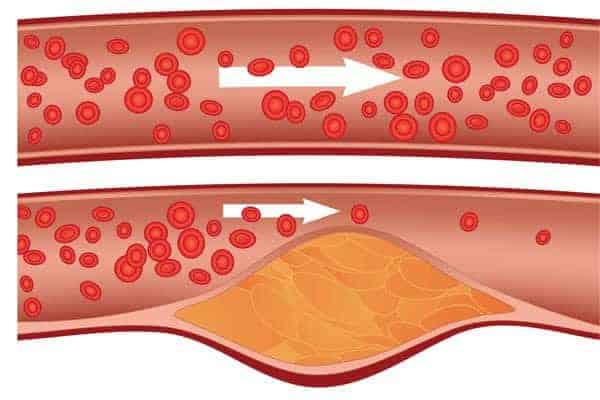Expert Tips to Build a Perfectly Balanced Vegetarian Plate for Optimal Health
In recent years, vegetarian diets have surged in popularity, driven by growing awareness of their numerous health benefits, ethical considerations, and environmental sustainability. Research consistently highlights that adopting a vegetarian lifestyle can significantly lower risks of chronic diseases such as heart disease, obesity, diabetes, and certain cancers. However, achieving optimal health isn’t merely about eliminating meat; it’s about carefully balancing nutrients to ensure your body receives everything it needs. This article provides expert-backed insights and practical strategies to help you build a nutritionally balanced vegetarian plate, enabling you to thrive and maintain exceptional health.
1. Prioritize Plant-based Proteins

Protein is an essential building block in any diet, playing a crucial role in muscle repair, immune support, and overall wellness. While many worry vegetarian diets might lack adequate protein, numerous plant-based sources offer substantial amounts comparable to animal proteins. Options such as lentils, chickpeas, tofu, tempeh, quinoa, and beans are nutrient-rich and versatile. For instance, a cup of cooked lentils provides roughly 18 grams of protein, similar to the content found in a serving of chicken breast. By consciously including these wholesome alternatives, vegetarians can effortlessly meet their protein needs and maintain optimal health.
2. Include Whole Grains for Sustained Energy

Whole grains are essential components of a balanced vegetarian plate, providing sustained energy and vital nutrients such as fiber, B vitamins, and minerals. Unlike refined grains, whole grains like brown rice, quinoa, barley, oats, and whole-wheat pasta retain their nutrient-rich bran and germ layers, promoting digestive health and stable blood sugar levels. For instance, swapping white rice with fiber-rich brown rice can significantly enhance satiety and energy levels throughout the day. Incorporating these nutrient-dense grains not only boosts nutritional value but also adds delightful textures and flavors, creating satisfying meals that support overall wellness and vitality.
3. Incorporate a Variety of Colorful Vegetables

Vegetables are nutritional powerhouses, and their vibrant colors signal a diverse array of essential vitamins, minerals, and antioxidants. Adopting a “rainbow approach”—filling your plate with produce of various hues—is a simple yet effective strategy to ensure balanced nutrition. For example, bright orange carrots are rich in beta-carotene, leafy green spinach provides iron and calcium, red bell peppers offer vitamin C, and broccoli delivers fiber and vitamin K. Regularly combining different-colored vegetables not only enhances the visual appeal of your meals but also ensures your body receives a comprehensive range of nutrients needed for optimal health.
4. Don’t Forget Healthy Fats

Healthy fats are essential for numerous bodily functions, including hormone production, nutrient absorption, brain health, and maintaining vibrant skin. Incorporating plant-based sources rich in monounsaturated and polyunsaturated fats, such as avocado, nuts, seeds, and olive oil, can significantly enhance overall wellness. Unlike unhealthy saturated and trans fats found in many processed foods, these healthy alternatives support cardiovascular health and help reduce inflammation. For instance, drizzling olive oil over a vibrant salad or topping your oatmeal with chia seeds or almonds not only adds delicious flavor and texture but also ensures your diet provides essential fats to nourish your body effectively.
5. Include Dairy Alternatives for Calcium Intake

Calcium is crucial for maintaining strong bones and teeth, nerve transmission, and muscle function, making it an essential nutrient in any vegetarian diet. Fortunately, numerous dairy alternatives provide abundant calcium without relying on traditional dairy products. For instance, fortified almond milk, soy yogurt, and plant-based cheeses can deliver comparable calcium content to cow’s milk, often with fewer calories and less saturated fat. Regularly consuming these calcium-rich options—such as adding fortified almond milk to smoothies or enjoying soy yogurt topped with fresh fruits—helps ensure adequate calcium intake, promoting bone health and overall vitality in a vegetarian lifestyle.
6. Boost Iron Absorption with Vitamin C

Ensuring adequate iron intake can sometimes be challenging in vegetarian diets, as plant-based iron sources (non-heme iron) aren’t absorbed as efficiently as animal-based sources. However, pairing iron-rich foods with vitamin C significantly enhances absorption. For example, combining spinach, lentils, or black beans—all excellent sources of plant-based iron—with vitamin C-rich foods like oranges, tomatoes, or bell peppers can dramatically improve your body’s iron uptake. A simple approach could be adding bell peppers to your lentil salad or squeezing fresh lemon juice over sautéed greens. This smart nutritional pairing helps maintain healthy energy levels and supports overall well-being.
7. Remember Vitamin B12 Supplementation

Vitamin B12 is essential for nerve function, red blood cell production, and overall brain health, yet it poses a unique challenge for vegetarians, as it naturally occurs primarily in animal-based foods. To effectively meet your B12 needs, consider incorporating fortified foods such as nutritional yeast, plant-based milk, and breakfast cereals into your meals. Alternatively, taking a daily or weekly B12 supplement can reliably ensure adequate intake. According to the National Institutes of Health (NIH), adults should aim for approximately 2.4 micrograms of vitamin B12 daily. By proactively addressing this critical nutrient, vegetarians can safeguard their health and vitality.
8. Add Seeds and Nuts for Essential Minerals

Seeds and nuts pack a nutritional punch, offering vital minerals such as zinc, selenium, and magnesium, which support immune function, nerve health, and energy metabolism. Incorporating mineral-rich options like pumpkin seeds, chia seeds, almonds, and walnuts into your daily meals or snacks can significantly boost your nutrient intake. For instance, pumpkin seeds provide abundant zinc, essential for immune health, while almonds and chia seeds are excellent sources of magnesium, crucial for muscle function and relaxation. Sprinkle chia seeds onto oatmeal or yogurt, snack on a handful of almonds, or add pumpkin seeds to salads for delightful texture and enhanced nutritional benefits.
9. Stay Hydrated for Optimal Digestion

Proper hydration is essential for optimal digestion, nutrient absorption, and overall health, particularly in fiber-rich vegetarian diets. Drinking adequate water not only facilitates smooth digestion but also supports the body’s ability to efficiently absorb essential nutrients from plant-based foods. In addition to regular water intake, incorporating water-rich fruits and vegetables can significantly enhance hydration levels. Foods such as cucumbers, watermelon, celery, and tomatoes naturally contain high water content, providing hydration alongside valuable vitamins and minerals. Consider snacking on watermelon slices or adding cucumber slices to your water to stay refreshed and support healthy digestion throughout the day.
10. Use Herbs and Spices for Flavor and Antioxidants

Herbs and spices not only elevate the flavor profile of vegetarian dishes but also significantly boost their antioxidant content. Incorporating aromatic spices such as turmeric, basil, oregano, and cinnamon into your cooking can enhance both taste and nutritional value. For example, turmeric contains curcumin, a potent antioxidant shown to possess anti-inflammatory properties. Similarly, oregano and basil are rich in antioxidants that help combat oxidative stress in the body. A study published in the Journal of AOAC International underscores the antioxidant potential of common culinary herbs. Adding these flavorful ingredients regularly supports overall health while delighting your palate.
Conclusion

Adopting a vegetarian diet offers remarkable health benefits, provided it’s nutritionally balanced and thoughtfully planned. By prioritizing plant-based proteins, whole grains, colorful vegetables, healthy fats, and dairy alternatives, and by enhancing iron absorption, supplementing vitamin B12, and adding nutrient-rich nuts, seeds, herbs, and spices, you can confidently fuel your body for optimal health. Remember, proper hydration further supports digestion and nutrient absorption. Consistently applying these practical tips will ensure your vegetarian meals are wholesome, satisfying, and vibrant. Embrace these strategies today, and enjoy the vibrant health and vitality that a balanced vegetarian lifestyle can offer.





